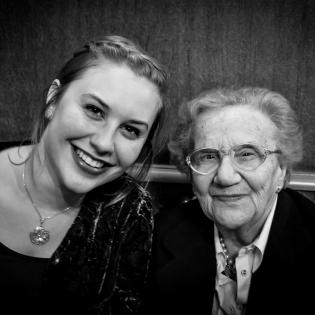Global Peace and Local Legacies
How does an individual use personal interests and strengths to impact the common good?
Photo Credit: Young & Old by Benny Raemdonck is licensed under CC by 2.0
Youth learn about the Nobel Peace Prize and analyze how the choices made by Nobel Peace Prize recipients led to improvement in the common good. Young people examine family, school, and local community for individuals or organizations that positively impact the common good and leave a legacy. They show appreciation for selected individuals.
This lesson introduces Alfred Nobel and his legacy, the Nobel Peace Prize.
With the Nobel Peace Prize as an example of an award given for improvements to the common good, the young people list descriptors of people and organizations in their community or families who exhibit generosity and promote peace in some form.
